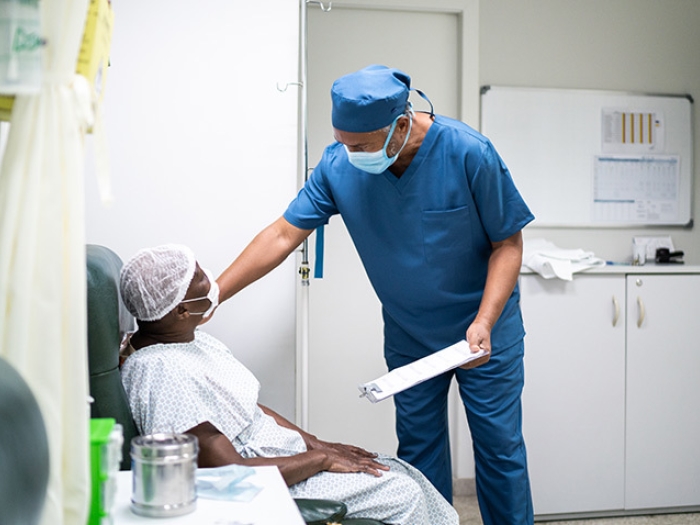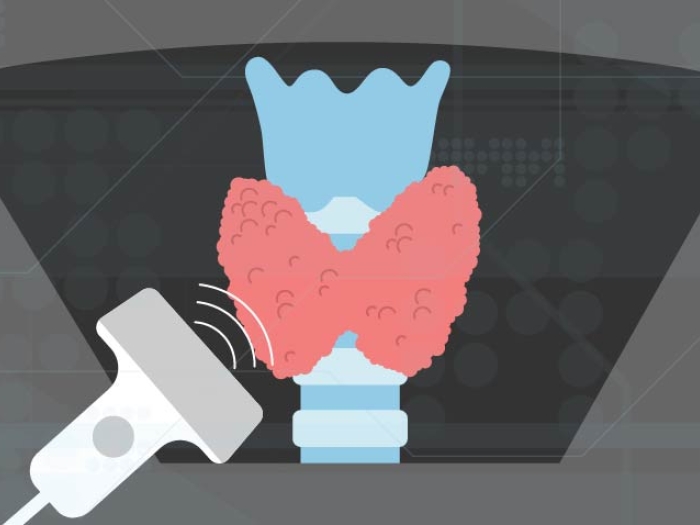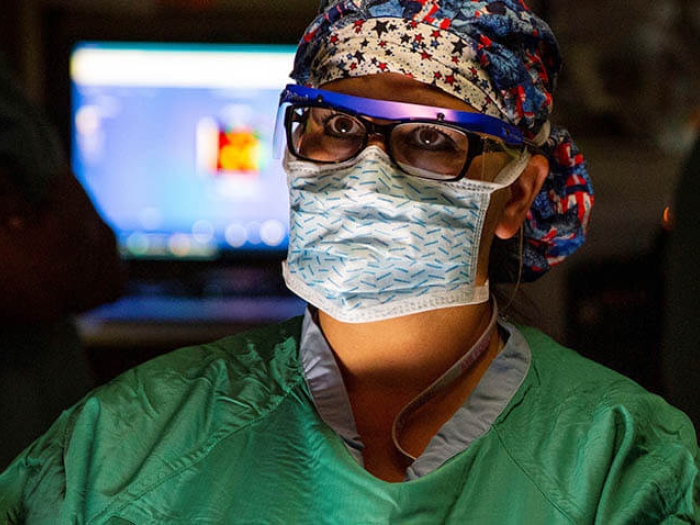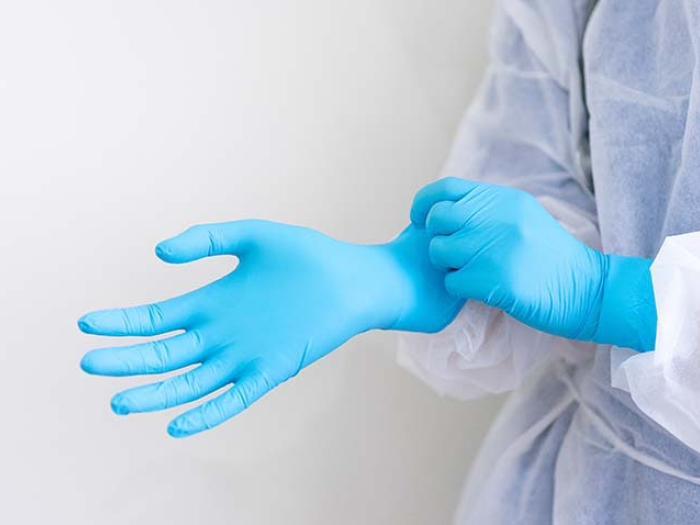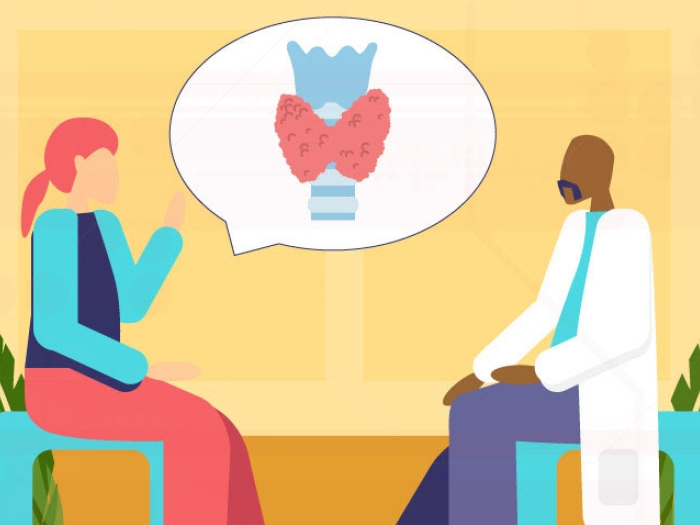As Vice President Joe Biden rolls out his “cancer moonshot” program, designed to further treatment breakthroughs and improve patient care, multidisciplinary teamwork is key.
7:00 AM
Author |

When we finally develop broad and enduring treatments for many leading forms of cancer, historians may recall President Barack Obama's stirring call for a "moonshot to cure cancer" in his final State of the Union address as a major turning point in the long war against the "emperor of all maladies."
SEE ALSO: International Collaboration Leads to Clues About Rare Cancer
While the president's language rang with Kennedyesque inspiration, Vice President Joe Biden's more prosaic speech three days later may have truly laid the groundwork for victory against a disease that claims the lives of almost 600,000 Americans each year.
In an address earlier this year, Biden implicitly recognized the challenges faced by researchers who study cancer — it's not a single disease, but a complex set of perhaps 200 diseases known by a single name.
The goal, he said, "is to make a decade worth of advances in five years."
Biden also noted that great strides do not just depend on new discoveries and innovative treatments. We can also make real impact on health using the tools and knowledge we already have more effectively.
Specifically, he urged everyone fighting cancer to "break down silos and bring all the cancer fighters together — to work together, share information and end cancer as we know it."
In a word, Biden called for collaboration — for everyone in the fight to see themselves as members of a single army battling a common enemy.
'An urgent need'
Biden's call is much more than a commentary that when independent researchers and corporations balance their healthy quest for prestige and profits, their lack of collaboration can also be impediments to discovery. It is recognition of how much science and medicine have changed during the past few decades, creating an urgent need for reform in how we accelerate disease-targeted research progress based on an expansive new understanding of collaboration.
Despite romantic notions of lone genius inventors and eureka moments, the increasingly complex and resource-intensive nature of scientific and medical research has fostered both specialization and teamwork. The field once known simply as biology, for example, has splintered into an array of micro-disciplines.
SEE ALSO: High Drug Prices Have 'Enormous Human Cost'
Ironically, as the questions asked grew more focused — creating silos of information — the scope of inquiry became far wider.
Especially during the last half of the 20th century medical research extended beyond those seeking to unravel the mysteries of the human body. Today, engineers, mathematicians, statisticians, chemists, physicists and computer scientists work on problems that run the spectrum from basic biomedical discovery to the development of new treatments for disease, including cancer. This trend is expanding even further as we learn more about how our most devastating diseases are subject to the complex influences of our social and physical environment — requiring that we look to social, public health, economic and environmental research to address critical human health issues.
And there remains a great value in "discovery science" where rather than seeking to cure a disease, scientists seek to understand basic biologic mechanisms that often impact health in a major way. Teams of disease-targeted researchers must remain open to these newly discovered keys to biology.
As Vice President Biden suggested, this new landscape poses great challenges and even greater opportunities for collaboration. While in the past this meant finding ways to bring like-minded researchers and practitioners together, now it also includes creating mechanisms to encourage collaboration among experts in far-flung fields. We must also find new ways to share the information we are now able to gather, analyze and share about patient outcomes, thanks to the rise of new technologies and big data.
And this doesn't just apply in the fight against cancer; it applies to other health problems we face in heart disease, obesity, diabetes and more.
In the spirit of Biden's call, we must all work to share information and encourage collaboration in order to pool and exploit the vast knowledge about cancer and other diseases that have remained hidden away in silos.Marschall S. Runge, M.D., Ph.D.
Uniting researchers across disciplines
Fortunately, this effort to make more effective use of the expertise and information already available is underway in pockets of research activity across the country, including where I work, the University of Michigan.
At the University of Michigan, interdisciplinary research is already a hallmark of our Comprehensive Cancer Center. Our Cancer Center members come from 48 university departments across nine schools, demonstrating a breadth of interdisciplinary collaboration not seen elsewhere. The biggest advances in cancer will come at the intersection of disciplines. It's not medicine alone, but medicine working with engineering, pharmacy and other schools to create true innovation. This has led to recent discoveries such as the development of a potential new drug to treat the most lethal form of breast cancer and new ideas for preserving fertility among cancer patients.
In 2011, we created the Institute for Healthcare Policy and Innovation to bring together health services researchers in a variety of fields to evaluate how health care works and how it can be improved, and to advise policymakers to inform change.
Today, more than 460 researchers — including public health specialists and physicians, lawyers and pharmacists, social scientists and nurses, engineers and economists — are working together to mine the massive data found in medical records, and make discoveries that can improve the quality, safety, equity and affordability of health care services.
We have also launched similar efforts in biology-driven disciplines, focusing on studies of microorganisms that live in our bodies, probing the role of botched protein production in many diseases and understanding cancer's devious biology.
Our institution, like others, has provided the seed money to help researchers in these and other fields pursue broader, more collaborative questions that have not traditionally received NIH funding. With this changing landscape for biomedical research, we also need to develop new incentives to reward and advance the careers of those who engage in this collaborative work.
In the spirit of Biden's call, we must all work to share information and encourage collaboration in order to pool and exploit the vast knowledge about cancer and other diseases that have remained hidden away in silos.
Just as Apollo 11 astronauts reached their destination, I believe that our moonshot to cure cancer, and to address other major health issues confronting our nation, will ultimately succeed not only because of the powerful tools and knowledge we have at our disposal, but also because of our much better sense of how collaboration can help us use and develop them to conquer this ancient foe.

Explore a variety of healthcare news & stories by visiting the Health Lab home page for more articles.

Department of Communication at Michigan Medicine
Want top health & research news weekly? Sign up for Health Lab’s newsletters today!

